#jennifer saint
Text
just discovered dionysus is bisexual and had a lover called ampelos. welcome to the club king
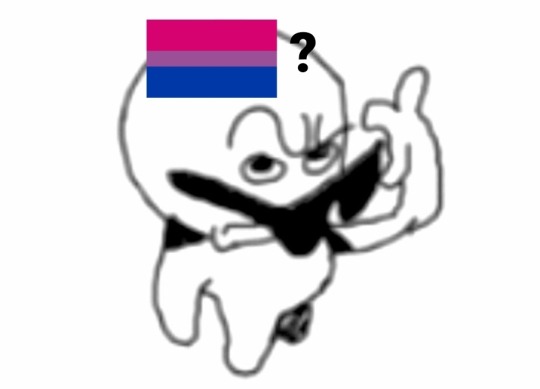
#coming from dionysus it doesnt suprise me tbh 😭#btw im reading ariadne !!#ariadne#dionysus#ampelos#greek mythology#greek myth memes#greek myth#pjo/hoo#percy jackson#jennifer saint
268 notes
·
View notes
Text


Today I was shopping at B&N and saw something exciting…my VERY FIRST front cover blurb! Thanks for blurbing my Booklist review, Flatiron Books! And shoutout to Elektra by Jennifer Saint.
55 notes
·
View notes
Text
i will be live-blogging my experience of reading ariadne by jennifer saint. if you don’t want to be a part of this, block the tag ‘eden reads ariadne’. i will say that the experience will most likely not pleasant, i famously don’t like adaptations<3
also, when i say ‘live blogging’ this means i will make one post every week. i’m in a reading slump and also have exams and hate these books. it will be slow.
#greek mythology#greek myth#ariadne#theseus#theseus and the minotaur#minotaur#dionysus#jennifer saint#eden reads ariadne#inspired by vans 😌 check out hee blog for the link
127 notes
·
View notes
Text
i love a good greek retelling
#greek mythology#greek retelling#madeline miller#pjo fandom#percy jackon and the olympians#percy jackson#pjo series#rick riordan#riordanverse#annabeth chase#books#tbr list#jennifer saint
31 notes
·
View notes
Text
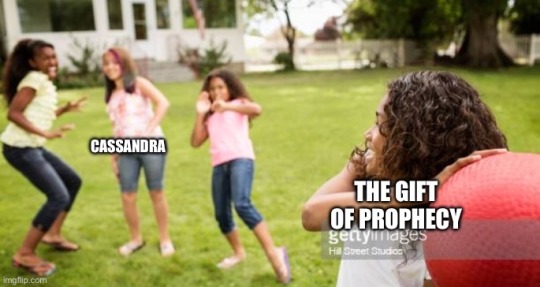
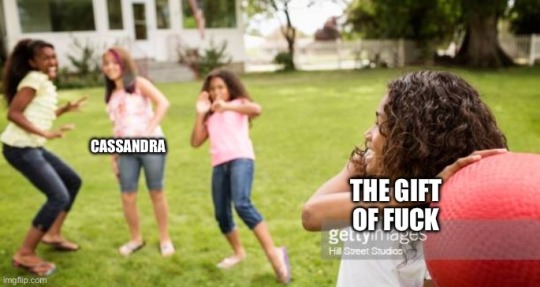
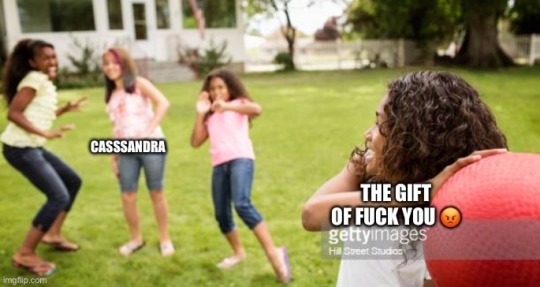
11 notes
·
View notes
Text
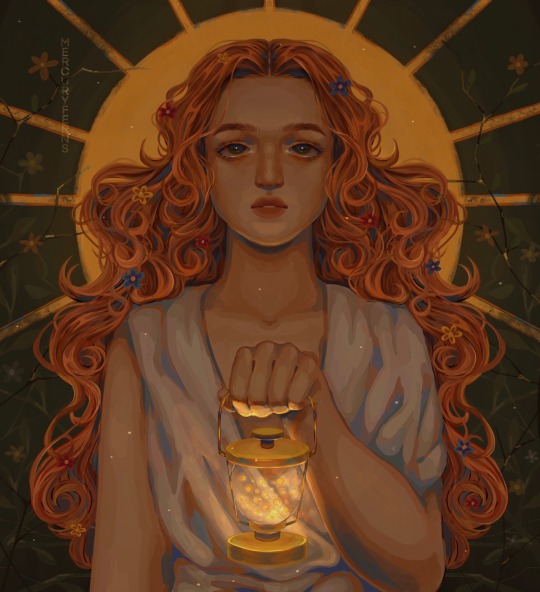
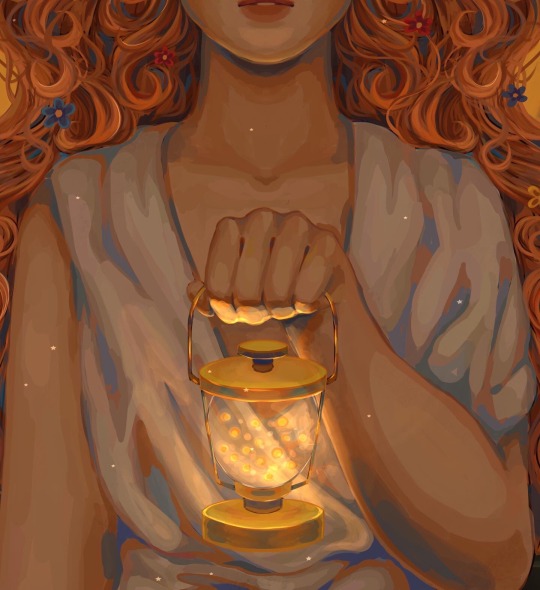


this concludes today’s tumblr art dump. i hope u enjoyed
#ariadne#ariadne by jennifer saint#jennifer saint#fanart#greek mythology#folklore#theseus#dionysus#greek myths#king minos#digital art#art#artblr#artist#painting#mercuryferns art
253 notes
·
View notes
Text
No one asked about Ariadne. It was as though she were nothing more than the gems or the gold that Theseus and his men had taken.
From Ariadne by Jennifer Saint
8 notes
·
View notes
Text
i started reading ariadne, and yes, while i knew it is a retelling of the story of theseus from ariadne's view, and that many women in the old stories suffer behind the glory of the men, i did not expect to be hit with these two lines, on the same page, 15 pages into the book:
What I didn't know was that I had hit upon a truth of womanhood: however blameless a life we led, the passions and the greed of men could bring us to ruin, and there was nothing we could do.
No longer was my world one of brave heroes; I was learning all to swiftly the women's pain that throbbed unspoken through the tales of their feats.
Like damn.
#ariadne#ariadne jennifer saint#jennifer saint#books#greek mythology#chaotic academia#dark academia#reading
29 notes
·
View notes
Text


26.09.2022 // visited Málaga today (very crowded but nice architecture) and bought myself "Electra" in spanish (as if i could understand the book...). why are book covers in spain so beautiful? that's not fair for my bank account...
#booklr#original#reading#books#mariecuriestudies#studying#university#studyinspo#electra#spain#malaga#jennifer saint
151 notes
·
View notes
Text
Okay, so, since my last post about Ariadne by Jennifer Saint I want to try and elaborate a bit more on that. This post contains spoilers. Please understand that these are just my personal opinions. I didn't really talk about the accuracy because 1) there are different versions of the myth and not everyone chooses to believe in the same one 2) a retelling is a retelling and we know that talking about accuracy is a lost cause right ???
if you have more to add, feel free to write!
I did not completely hate the book, because at least I managed to finish it lol, but still, there are some things that just didn't feel right to me.
- I don't really know how to explain it, but I found some sort of inconsistency with the writing. Some actions, thoughts, memories, places and characters where fully described in detail while some other things that were equally if not more important (in my opinion at least) were barely mentioned. Like the wedding. I believe Dionysus and Ariadne's wedding is one of the central parts of the myth, isn't it? I don't really care about reading of every single leaf of every single tree of Naxos when the marriage is barely mentioned. They had a simple wedding, just them and the maenads, okay, but really, we don't want to talk a little more about one of their best moments together? And the same with the kids. The author literally made Ariadne be like "yeah we got married and we had kids, that's it";
- Ariadne's reaction to Phaedra's death. I just can't believe that she just went and spoke to Theseus and told him what happened when she had just seen her sister's body. Okay, maybe she was so overwhelmed by everything that she couldn't even elaborate it until she got home to her husband, but still it was a bit off to me. That was HER SISTER;
- The ending ???? I hated Dionysus's reaction to her death. Just like Ariadne's reaction to Phaedra, I feel like everything was rushed and described as if it was just a small little detail of the plot. The author pictured Dionysus like "oh, my wife and mother of my 5 children just died because of my egocentric ass, goodbye love, u are a beautiful star now", she didn't elaborate on Dionysus's grief and sense of guilt at all. Okay he cried and ?? I'm pretty sure there's way more.. The last chapters just felt so dry and emotionless that they completely ruined the book.
I'll update the post if more things pop up in my mind.. As I've said before, feel free to share your opinions!
23 notes
·
View notes
Text
THOUGHTS ON: ARIADNE and ELEKRA

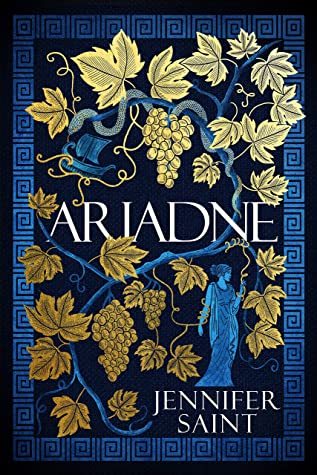

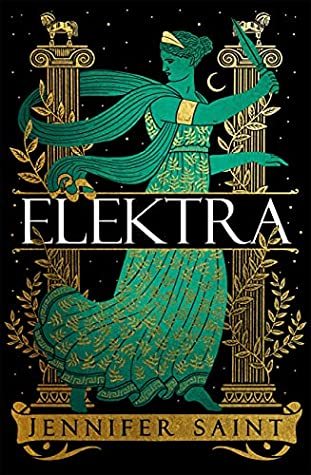
So I've reentered my Greek myth phase and I just want to talk about these two books for just a second!
First off, look how beautiful the covers are! And second, out of all these authors who've been retelling the Greek myths, Jennifer Saint is definitely one of my favorites! Something I've always hated about a lot of retellings (even with ones I've liked) is how characters are brought down in order to elevate the likability of another, even if that character has had no basis of being petty or cruel previously. And honestly, I probably wouldn't find it nearly as irritating as I do now if it weren't done with the same characters over and over again, with many of these stories having absolutely nothing new to say! Because then it just feels less like the author is trying to be revolutionary and more like they're just following a trend. And where's the challenge in that?
Enter Ariadne, a story all about challenging perspectives, about how appearances can be deceiving, even those made by the decent ones. Of course, you have Theseus with his abandonment of Ariadne after building himself up to be the greatest hero since Heracles, but later on, you also get Perseus; whom Ariadne comes to despise both because of his beheading of Medusa and because of his refusal to let his people worship Dionysus... until she actually meets the guy and finds that not only is he actually really nice and in a very complicated situation, but she herself even acknowledges that her perception of heroes may have been warped because of what Theseus had done to her, all while still having Perseus as an enemy.
As for Elektra, I actually liked it more than I did Ariadne, but also didn't, if that makes sense. So take Helen for example. How many times have we seen her as either vapid or selfish, someone who doesn't care that lives were lost in her name? Well, in this book... I wish we could say we get the opposite of that, but the thing is, this portrayal of Helen has very little personality to even speak of other than being nice! Seriously, even what led her to run away with Paris is treated with complete ambiguity! Like, I prefer it to her being demonized (Atwood, Miller to an extent) or desperately longing for freedom to the point of selfishness (Gill, Heywood), but that's not really saying much, is it?
Compare this to the Epic Cycle, where we get scenes like this:
Then Iris went as messenger to white-armed Helen,
in the likeness of her husband’s sister, the wife of Antenor’s son,
she whom Antenor’s son, lord Helikaon, held—Laodike, most outstanding in beauty of all of Priam’s daughters.
She found Helen in her chamber; she was weaving a great cloth,
a crimson cloak of double thickness, and was working in the many trials
of the Trojan horse-breakers and bronze-clad Achaeans,
trials which for her sake they had suffered under the hand of Ares.
Standing close, Iris of the swift feet addressed her:
“Come this way, dear bride, and see the marvelous deeds of the Trojan horse-breakers and bronze-clad Achaeans,
who earlier carried war and all its tears against each other
into the plain, in their longing for deadly battle;
these men now sit in silence, the war stopped,
leaning on their shields, their great spears fixed upright beside them;
and Alexandros and Menelaos beloved by Ares
are to fight with their great spears on your account;
and you will be called wife of that man who is victor.”
So speaking the goddess aroused in Helen’s heart sweet
longing
for her husband of old, her city and her children.
[...]
“Honored are you to me, dear father-in-law, and revered,
and would that evil death had pleased me at that time when
I followed your son here, abandoning my marriage chamber and kinsmen,
my late-born child, and the lovely companions of my own age.
But that did not happen; and so I waste away weeping. [...]”—Homer, Iliad (trans. Caroline Alexander)
And this:
“Come here; Alexandros summons you home; he is there, in his bedroom, on his bed that is inlaid with rings,
shining in beauty and raiment—you would not think
that he came from fighting a man, but rather that he was going
to a dance, or had just left the dance and was reclining.”
So she spoke; and stirred the anger in Helen’s breast.
And when she recognized the goddess’ beautiful cheeks
and ravishing breasts and gleaming eyes,
she stood amazed, and spoke out and addressed her by name:
“Mad one; why do you so desire to seduce me in this way?
Will you drive me to some further place among well-settled
cities, to Phrygia or lovely Maeonia?
Perhaps there too is some mortal man beloved by you—since now Menelaos has vanquished godlike Alexandros
and desires that I, loathsome as I am, be taken home.
Is it for this reason you stand here now conniving?
Go, sit yourself beside him, renounce the haunts of the gods,
never turn your feet to Olympus,
but suffer for him and tend him forever,
until he makes you either his wife, or his girl slave.
As for me, I will not go there—it would be shameful—to share the bed of that man. The Trojan women
will all blame me afterward; the sufferings I have in my heart are without
end.”
Then in anger divine Aphrodite addressed her:
“Do not provoke me, wicked girl, lest I drop you in anger,
and hate you as much as I now terribly love you,
and devise painful hostilities, and you are caught in the middle of both,
Trojans and Danaans, and are destroyed by an evil fate.”
So she spoke; and Helen born of Zeus was frightened;
and she left, covering herself with her shining white robe,
in silence, and escaped notice of the women of Troy; and the divine one led
her.
When the women arrived at the splendid house of Alexandros,
the handmaids swiftly turned to their work,
and she, shining among women, entered into the high-roofed chamber;
then laughter-loving Aphrodite, taking a stool for her,
placed it opposite Alexandros, the goddess herself carrying it.
There Helen took her seat, daughter of Zeus who wields the aegis,
and averting her eyes, reviled her husband with her words:
“You’re back from war; would that you had died there
broken by the stronger man, he who in time past was my husband.
Yet before this you used to boast that you were stronger than Menelaos, beloved by Ares, in your courage and strength of hand and
skill with spear;
go now and challenge Menelaos beloved by Ares,
to fight again, face-to-face—but no, I
recommend you give it up, and not fight fair-haired Menelaos man-to-man, or recklessly do battle,
lest you be swiftly broken beneath his spear.”—Homer, Iliad (trans. Caroline Alexander)
And if you want to look beyond the Iliad itself, there's also this:
Next comes the Little Iliad in four books by Lesches of Mitylene: its contents are as follows. The adjudging of the arms of Achilles takes place, and Odysseus, by the contriving of Athena, gains them. Aias then becomes mad and destroys the herd of the Achaeans and kills himself. Next Odysseus lies in wait and catches Helenus, who prophesies as to the taking of Troy, and Diomede accordingly brings Philoctetes from Lemnos. Philoctetes is healed by Machaon, fights in single combat with Alexandrus and kills him: the dead body is outraged by Menelaus, but the Trojans recover and bury it. After this Deiphobus marries Helen, Odysseus brings Neoptolemus from Scyros and gives him his father's arms, and the ghost of Achilles appears to him. Eurypylus the son of Telephus arrives to aid the Trojans, shows his prowess and is killed by Neoptolemus. The Trojans are now closely beseiged, and Epeius, by Athena's instruction, builds the wooden horse. Odysseus disfigures himself and goes in to Ilium as a spy, and there being recognized by Helen, plots with her for the taking of the city; after killing certain of the Trojans, he returns to the ships. Next he carries the Palladium out of Troy with help of Diomedes. Then after putting their best men in the wooden horse and burning their huts, the main body of the Hellenes sail to Tenedos. The Trojans, supposing their troubles over, destroy a part of their city wall and take the wooden horse into their city and feast as though they had conquered the Hellenes.—Proclus, Chrestomathia
And this:
Concerning Aethra Lesches relates that when Ilium was taken she stole out of the city and came to the Hellenic camp, where she was recognised by the sons of Theseus; and that Demophon asked her of Agamemnon. Agamemnon wished to grant him this favour, but he would not do so until Helen consented. And when he sent a herald, Helen granted his request.—Pausanias
Say what you will about society in Ancient Greece, but it really is sad when the source material is even slightly more progressive than the retellings are, such as when Helen tries to resist Aphrodite. And that's not to say Helen has never been given a more assertive personality before, but when she is, it's usually at the expense of making Menelaus a terrible husband (again, Gill, Heywood). The only other one I can think of that even comes close to this without attacking another character is The Private Life of Helen of Troy by John Eriskine, and not only did it come out in 1925, but it's a sequel anyway too.
Going back to Elektra, I'm surprised there has yet to be a generational series on the House of Atreus as a whole, because wow did I forget how messed up this family was and I love it! You've got your family drama, your betrayals, your cycle of vengeance! And with Pelops' line specifically, it all leads up to a mother avenging her daughter and a daughter avenging her father. It's perfect! But seriously, if anyone knows of a show or book series covering Tantalus and his bloodline, please tell me!
Which brings me to Agamemnon, whose portrayal here I found to be interesting. So something about Elektra is that it's told from three different PoVs, and because of that, each views Agamemnon in a certain way: to Clytemnestra, he's the proud warrior who killed their eldest daughter; to Elektra, he's the kind father whom she misses dearly; to Cassandra, he's her captor and destroyer of her city. And even then, we still get these tiny glimpses of his true self beneath his usual stern exterior—that of an insecure man who's desperately trying to make something out of his family name after reclaiming his home, a name that had already been cursed since long before he was born. But maybe he can change that by gaining glory in war... even if it means sacrificing his own daughter for a fair bit of wind.
Then you have the clear parallels that are drawn between Clytemnestra and Elektra as the book goes on, simultaneously sympathizing and condemning both for the actions they take. Even Aegisthus probably would've been seen as a hero if this were any other story. And I feel like this is true to the original Oresteia as well, how not one person can be categorized as being solely a hero or villain, but human.
So go ahead and give me the love story of Hades and Persephone, but remember that it's mournful Demeter's tale as much as it is theirs.
Give me the stories of the women and goddesses who have long been ignored throughout the centuries, but remember that it's possible to write such tales without having there be a need to drag those around them down.
Give me love, give me drama, but most of all, give me understanding and complexity.
And going back to the books themselves, honestly, if there was anything negative I had to say about both of them is that the myths are retold pretty directly for the most part, something I myself didn't actually have much of a problem with, but I understand may be a turn-off for some people, especially if you're looking for something a little more deviating from the source material in terms of characterization. Also, for some reason, both Greek and Roman spellings are used, instead of just sticking to one, hence why I've been using Elektra instead of Electra, but not Klytemnestra and Kassandra for, well, Clytemnestra and Cassandra. Not unique to Saint, but still no less jarring.
Like I said, of the two, Elektra was probably my favorite, but there were still a ton of problems I had with it, some more nitpicky than others, I'll admit. I already went over my feelings on Helen, but besides that, seeing more of Elektra's relationship with her father before he goes off to war would've been nice to see too. I also feel like if each book absolutely had to be named after a single character, then I kinda think this one should've been called Clytemnestra instead since it really did feel more like her story than Elektra's, at least for me. Some parts also felt a little rushed, especially with how the final chapter just jumps from Elektra getting her revenge to the epilogue describing what had happened afterwards instead of actually showing it, which makes me wish this book had either been a little longer or divided into a duology—one part focusing on Clytemnestra getting her revenge while the other is focused on Elektra's, similar to how Aeschulys divides them in his Oresteia trilogy. Or if neither of these solutions while still keeping the book at the same length, then maybe Cassandra's PoVs could've even been saved for her own book instead.
Speaking of Cassandra, there's also the fact that her fate ends up being a mercy kill rather than the cold-blooded murder it was in the original, basically absolving Clytemnestra of any wrongdoing when it came to this. Admittedly, I wasn't as annoyed over it as I could've been and the choice made sense to me as far as the presentation of the characters in the novel are concerned, but at the same time, it'd be nice to see more retellings actually portray Clytemnestra as so far gone by the time Agamemnon returns that she ends up killing an innocent in cold blood rather than just being a mournful mother out for revenge. Seriously, it's possible to do both.
And as for Elektra herself, the fact that it is very heavily implied she has the complex that's been named after her is just... no. And if that's the case, here's hoping Saint never does an Oedipus retelling. I can handle it with the gods because they're gods, but not when its mortals.
Also, the fact that Theseus isn't even mentioned once in Elektra despite the fact that he (and Pirithous) tried to kidnap Helen when she was twelve always felt like a missed opportunity to me, especially considering the book was published after Ariadne, where Theseus is of course a major character and him and Pirithous trying to kidnap Persephone is actually mentioned. It wouldn't have added anything to the story, but I still think addressing that little connection would've been neat.
And yet despite all of this, I still loved it, as well as Ariadne, flaws and all. But here's hoping Atalanta will be even better!
#greek mythology#jennifer saint#ariadne#elektra#theseus#hippolytus#phaedra#clytemnestra#cassandra#helen of troy#helen of sparta#menelaus#agamemnon#house of atreus
59 notes
·
View notes
Text
I just finished "Ariadne" by Jennifer Saint and I'm not fine. (This obviously contains some spoilers but nothing to major)
I do not accept this ending. I don't mean to criticise Jennifer's choice but Ariadne deserved better. No she lived her life on Naxos with her five Sons and Phaedra and all is well. When she grows old Dionysius takes her to Olympus and makes her his immortal wife thats how the story ended for me.
But honestly it's a great book you should read it especially if you like feminist retelling of Greek mythology
#Ariadne#jennifer saint#im so not fine with this#Dionysius#Naxos#Ariadne of Naxos and Crete#Ariadne of Naxos#Asterion#feminist retellings#greek mythology#Fuck Theseus#yes thats the only hashtag he gets because its the only one that asshole deserves#Perseus#Crete#Knossos#Minos#Hera#Phaedra of Athens and Crete#yes im delusional right now
9 notes
·
View notes
Text
“I would be Medusa, if it came to it. I resolved. If the gods held me accountable one day for the sins of someone else, if they came for me to punish a man’s actions. I would not hide away like Pasiphae. I would wear that coronet of snakes and the world would shrink from me instead”
— Ariadne, by Jennifer Saint.
11 notes
·
View notes
Text
ARIADNE (JENNIFER SAINT) REVIEW
RATING: 5/10
FIND HERE
LIVE-BLOG
NOTE: i found live blogging this book very fun actually! i also wanted to thank you all so much for not spoiling the ending despite the many rants, i’m glad i got to experience that for myself. i did skip some chunks of the phaedra/hippolytus part due to personal triggers so you won’t find much about that in this review. @a-chaotic-dumbass here it is<3
TL;DR: i definitely did like jennifer saint’s actual writing style, though there were some issues with the actual pacing of the story. despite there not being any major inaccuracies, the small things did add up and did annoy me. my biggest issue with this book however are the characters.
SPOILERS UNDERCUT
WRITING (7/10)
I genuinely loved Saint’s style! She is definitely a great writer. There was a perfect balance between simplicity and imagery; some nice quotes but no purple prose and most importantly no dramatic descriptions of feet, which i really enjoyed. I usually don’t enjoy multi-pov that much and it was a bit random getting Phaedra’s POV at times but Saint definitely knows how to give each of her characters a distinct voice, so I actually enjoyed it! I also very much like that she gave Phaedra what seemed to be PPD—it’s always great to get some good representation of such things. Despite what I say about the characters later on, they do all seem to experience some form of character arc which is always a good sign.
The pacing threw me off a little, partially because she tried to fit such a large and versatile myth into one book and partially because of the large chunks of exposition. I honestly skimmed over Theseus’ narration of his previous adventures… I understand that the story has to make sense to non-myth fans, but with her great writing I would have hoped she could’ve found a more elegant way to weave that in. Like I said, the cramming of such a huge myth into a single book resulted in her having to go extremely off-topic to finish story lines. It would’ve been better if done implicitly (e.g. the Icarus myth). Similarly, for about a hundred pages in the book, nothing happened. Different amounts of time passed in each POV chapter which was very confusing, but at the same time there isn’t much you can do about that. I was however disappointed when I got five years of Phaedra’s POV and then a single (bad) exposition chapter from Ariadne in a book that is literally named after her. Honestly, Part 3 was more Phaedra’s book than it was Ariadne’s.
I also wasn’t a huge fan of the 1st person but that’s just a personal nitpick. There were some off lines or some incongruities, but they weren’t too bad overall.
ACCURACY (5/10)
Story-wise, there no big inaccuracies other than the ending, which I absolutely hated, it was just so stupid and unnecessary. In fact, I’m not going to speak about it at all. The way she added the Phaedra and Theseus storyline (though not entirely accurate) was smart and helped story progression, so I’ll consider that a bonus point. The fact that they waited for Phaedra to turn 18 to marry is obviously for modern readers but I can appreciate that nonetheless. I definitely did enjoy the little sprinkles of myths here and there, especially the sentences that are literally just implications (e.g. a King holding up the sky for his people). Looking for those made reading really fun. The fact that she drew parallels made everything so much better. I can also appreciate the fact that she got the timeline correct, only referencing women that came before Ariadne and not after. She does however mention Theseus’ trip to the underworld, conveniently ignoring the fact that this happened long after the Minotaur fiasco (and that Theseus’ ass literally got ripped off). It just serves to make Theseus look bad, but more on that later.
The fact that Phaedra spent most of the book in Athens makes things tricky considering how misogynistic the polish is and none of the power she had there made sense. Reasonably, she wouldn’t be allowed to sit in a single council, let alone share her thoughts and much less conduct entire festivals with women from surrounding cities. Saint tries to point out how unlikely this is and considering it’s a feminist book, things like this are hard to leave out, so there isn’t much she can do. I just don’t like feminist retellings and I still think they don’t work.
I found it a little silly for the characters (who know nothing other than the greek mythology world) to be describing the myths to other characters, as well as Pasiphae translating Asterion’s name to Ariadne. Considering (ancient) Greek is her mother’s tongue, she would’ve probably known the word for star—it would’ve worked so much better if she’d drawn that connection for herself in her personal monologue. Similarly, she mentions a “foetus” at some point, which is a Latin word that came long after any of the described events. Simply saying ‘baby’ (the literal translation) would’ve made so much more sense, but alas.
The Medusa myth is obviously important to the story, especially given the ending (sigh). First of all, this was one of those instances with bad exposition. More importantly though, Saint uses Ovid’s iteration of the Medusa story which is a) misleading and b) also comes years after the events. I honestly love Ovid but using his version of the myth in a book that might very well be read by people that don’t know the original sets the wrong impression. On top of that, the original isn’t feminist at all. It’s anything but. Knowing that as a reader takes away the entire idea Saint was going for. I don’t even know what kind of symbolism Saint was going for by having Ariadne get petrified. All of this just to put Perseus in a bad light, which is unfair considering Perseus is probably the most humble hero there ever was.
This brings me to … Hera. I’m not even going to say much about because a) I don’t have the energy and b) this happens to her in every adaption so I’m not even surprised. You can find different antagonists for your feminist retellings than women, especially divine women, ESPECIALLY women who are victims in their own stories. Phaedra calls Artemis ‘cold and bloodless’ because she’s sworn an oath of chasitity, which … I get that you’re getting rejected but smells like aphobia to me? That just didn’t sit right with me. Life is not meaningless because you don’t love. Additionally, Phaedra goes on about how Artemis might have killed Ariadne for not remaining a virgin. There are a couple of things that annoy me about this such as a) if Artemis has this role in this world, why would Theseus suggest that Artemis killed her?? and b) Artemis was considered responsible for all unanswered female deaths! She doesn’t go around punishing girls that have extramarital sex! It’s simply not that big of a deal.
CHARACTERS (2/10)
Ariadne wasn’t too spectacular or memorable as a main character, but she didn’t really annoy me either. There were some moments where the plot or suspense of the story relied on her being completely stupid which had me screaming at the page. Most of this gets resolved through character developments and was actually set pretty well using foreshadowing e.g. the conversation with Theseus. The foreshadowing is there while also keeping Ariadne’s perspective in mind. Regarding the dancing… I made a huge fuss about it when live-blogging (i still find it funny don’t mind me) but now I actually like it? I was having a brain fart moment at the time and completely forgot her connection to Dionysos. It was really clever to introduce that from the beginning and I honestly wish that she had carried that on. I also wish her necklace would’ve gotten some more mentions, but it just got forgotten. It’s especially important considering Ariadne considered committing suicide with it.
I didn’t like the fact that Ariadne had no revolutionary thoughts whatsoever until Theseus shows up and then as soon as this hot hunk shows up, she’s all for killing her brother. The same brother she didn’t want to get locked up. Although there was some decent character development I did find her last choice to reason with Perseus a bit sudden. All of that just happened very fast.
Minos being a cruel and merciless ass doesn’t sit right with me anyway and the fact that Saint takes away his motivation to be that way (aka. his love and grief over his son) just makes it so much worse, I already said this in an ask, but she just shot herself in the foot with that. It would’ve made for such a great antagonist personality/motivation instead we have All Men Are Bad. She could’ve even made a point of him caring more for his dead son than his alive daughters!
As the number one Theseus hater, I would usually be the last person to defend him, but for some reason this portrayal felt really inauthentic. Personally, I don’t think Theseus was being malicious when leaving Ariadne behind, it’s just a thing he had to do. He’s not an evil mastermind, he’s just some shitty guy. This is all minor because I’m just suggesting a different type of evil, but I don’t know.
As for Dionysos… I honestly don’t know how I feel about him. Ariadne is way too subjective and unreliable for me to be able to make a proper assumption about him so I just won’t.
The only characters I really did enjoy from start to finish were Daedalus, Pasiphae and Deucalion, all of which barely got any screen time. In fact, my only complaint regarding Pasiphae is that I wished she had more screen time. I loved every moment I got to read about her.
#greek mythology#greek myth#ariadne#theseus#ariadne and dionysus#theseus and the minotaur#minotaur#dionysos#dionysus#mythology#greek gods#mythos#greek mythos#hera#artemis#daedalus#review#book review#jennifer saint#adaptation#book rating#greek myth adaptation#adaptations#perseus#medusa#phaedra#hippolytus
30 notes
·
View notes
Text
My favourite books I read in 2023

Elektra - Jennifer Saint

The Sunbearer Trials (The Sunbearer Duology #2) - Aiden Thomas
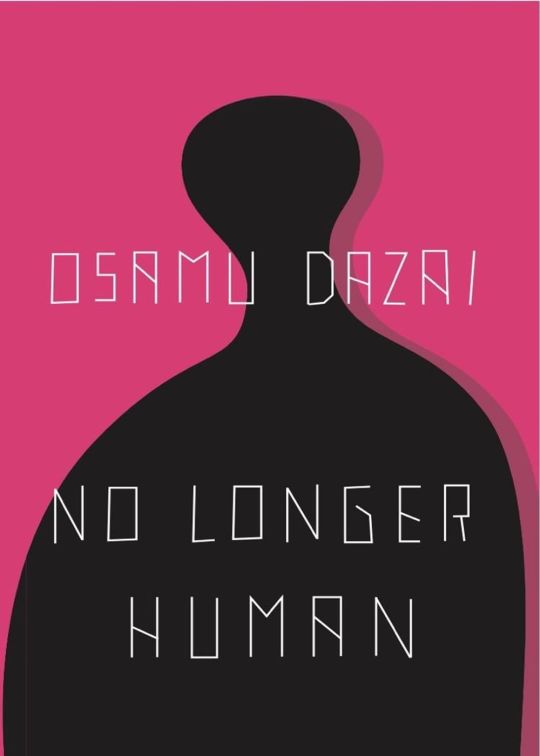
No Longer Human - Osamu Dazai

If We Were Villains - M. L. Rio

Dead Poets Society - N. H. Kleinbaum

Heaven - Mieko Kawakami
#reading#favorite books#favourite books#booklr#bookblr#book recommendations#the sunbearer trials#aiden thomas#elektra#jennifer saint#greek mythology#no longer human#ningen shikkaku#dazai osamu#if we were villains#m. l. rio#dead poets society#dps#n. h. kleinbaum#heaven#mieko kawakami#kawakami mieko#japanese literature
12 notes
·
View notes
Text
“Helios drove his mighty chariot beyond the horizon, leaving the world to darkness.”

~
“Selene’s chariot was high in the sky, bathing the stones in silvery light.”
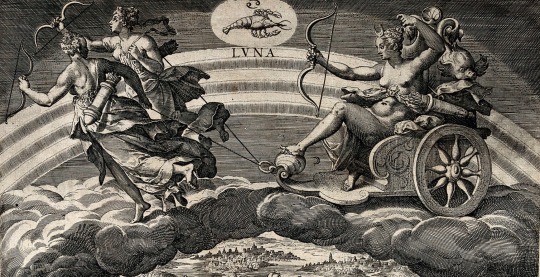
Ariadne by Jennifer Saint
#ariadne#jennifer saint#book excerpt#greek mythology#roman mythology#classic academia#dark academia#classics#greek mythology retelling#retelling#greek myths#greek gods#bookblr#dark academia blog#art history#ancient history#history of art
336 notes
·
View notes